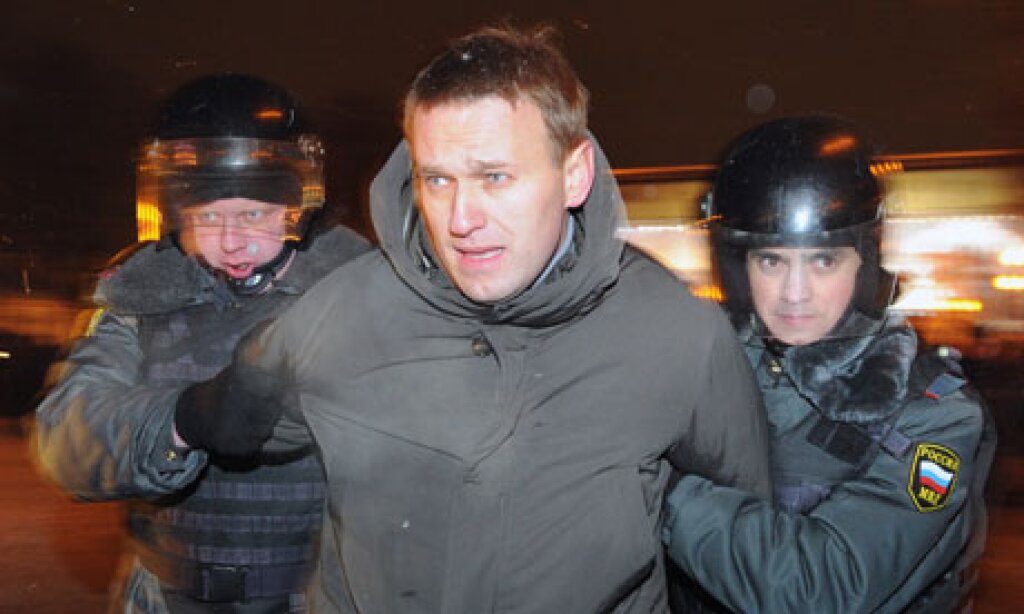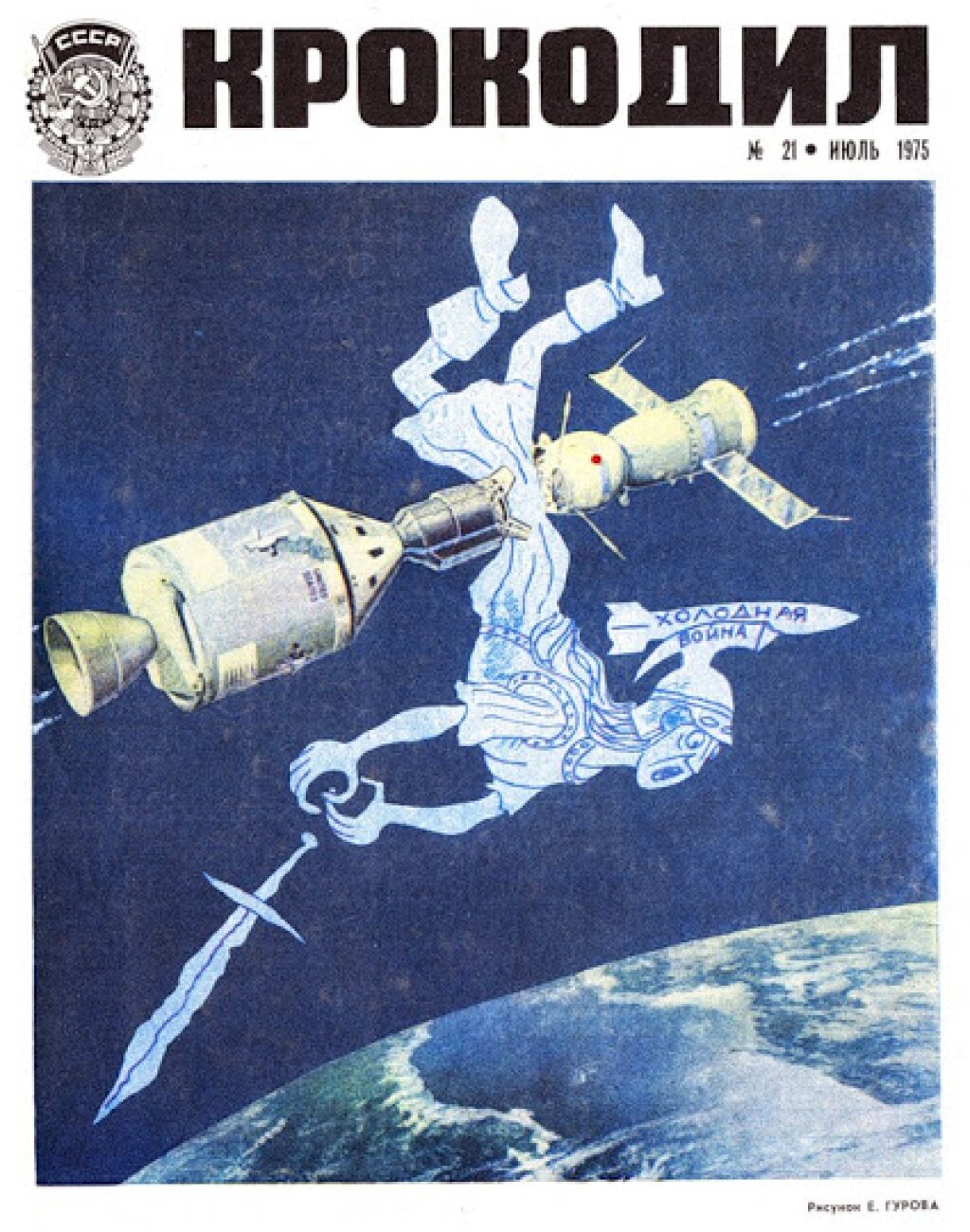Today, the Leninskii District court in Kirov (what would those two Bolsheviks have made of it all?) is due to see the start of Alexei Navalny’s case, as he faces charges of embezzling $500,000 through timber sales from the KirovLes enterprise.
Considering the way the Russian state manages its largely-compliant judiciary—and in the last two years the presiding judge in this case has issued 130 convictions and no acquittals—the question is not so much whether Navalny will be found guilty, however weak the charge. Rather, it is about how much Navalny can make the state bleed credibility and political capital in the process.
Much of that will depend on how the case resonates at home and abroad. Western journalists are there to report, the RuNetizens are preparing their campaigns and such opposition-lite luminaries as Mikhail Prokhorov have expressed their concerns, but to be honest I have been struck by the relatively limited nature of the press coverage abroad, but also the fairly muted response from Russians of opposition sympathies.
Of course, it’s been reported, especially since his declaration that he wanted to stand for president. However, the contrast with the massive and at times thoroughly hysterical and hyperbolic coverage of the Pussy Riot case, even before their trial, has been evident.
After all, while the Pussy Riot defendants were undoubtedly the victims of a kangaroo court (the very notion that they could be found guilty under the technical terms of ‘hooliganism’ rather than some lesser charge was ridiculous) and comported themselves with impressive dignity in court, nonetheless they were hardly important in and of themselves. The importance, I would suggest, lay in what the trial said about the wider processes at work: the lawfare of the courts in their use against expressions of opposition thought and sentiment, the heavy-handedness of Putin’s state, the role of a conservative and assertive Russian Orthodox Church. Let’s be honest, had the authorities simply patronized them as publicity-seeking little women, slapped them with a fine, and used this as an opportunity to present the opposition as being full of blasphemers and exhibitionists, it would have been a two-day wonder.
Whether or not Navalny is the potential savior of the nation or a nationalist opportunist who has spotted a chance to rise is irrelevant (and for the record, while I don’t believe him to be perfect, I certainly believe him closer to the former than the latter). He is undoubtedly at present the driving force behind the opposition, however inchoate and drifting it currently may be. He has brought the issue of the corruption elite into the center of Russian politics, and has done more than anyone else to connect that with the United Russia bloc, that bastion of the cynical, the careerist and the corrupt. At present, there is no one else who can assume his mantle, no one else who has a chance–no more than a chance–of being able to turn the middle-class metropolitan opposition into a credible political force.
Which is, of course, why the Kremlin wants him out of the way, whether in prison or, much more likely, smeared and given a suspended sentence which will preclude him from standing for political office. It also explains why attack-dog Bastrykin–a man also with a clear personal animosity against Navalny–has been given such a long leash. They fear him in a way that they don’t fear socialite-seditionist Kseniya Sobchak or leftist firebrand Sergei Udaltsov (who is incidentally languishing in house arrest, which has proven a much more effective way to marginalize him).
Less comprehensible is quite why the Russian opposition is not more active and why Western democrats who want to see Russia move away from authoritarianism are nowhere near as excited as they were during the Pussy Riot case. Sure, maybe things will be different once the court case starts, but at present there seems little real enthusiasm for Navalny’s cry for protests on the streets in Russia, and far less media attention, let alone op. ed. outrage in the West.
Is it that everyone is getting tired of protest that seems to get nowhere, and Kirov is a way away rather than just a couple of streets away in Moscow? (If so, welcome to the real world: regime change is a hard slog, not a New Year’s resolution.)
Is it that the outcome of the Pussy Riot case has left people feeling that Western outrage and domestic protest alike are powerless, maybe even counterproductive? (What, seriously, were they expecting: that stern words from Danny DeVito and Sting were going to reduce Putin to tearful apologies? But the Kremlin, for all its airy dismissals, cares about its image, about its soft power capacity. Give the Russian elite enough reason to feel embarrassed and demonized, and they’ll start wanting change.)
Is it that people dislike or mistrust Navalny? (Sure, there are some questions to be asked, from his nationalist politics to what he’s doing on the Aeroflot board, but to be honest it’s hard to see any such antagonism towards him from any but elements of the elite.)
When it comes to the Western media and Russia-watchers, can it really be as banal as that a guy who blogs about corruption is a less exciting topic to discuss that balaclava-ed punkettes? That “People got interested in Pussy Riot on a global scale because it included so many themes – feminism, gay rights, religion” but that the bedrock issues of power and freedom aren’t as widely appealing? (Sadly, there is probably more than a little truth here.)
Whatever the reason, I cannot help but feel there is a potential opportunity here that risks being squandered. When Brian Whitmore and I were discussing the case in a Power Vertical podcast (you don’t subscribe to it? You should!) we agreed that the trial could represent a turning point for the opposition, a chance to get its act together after over a year of drift, a chance to cohere around a high-profile case, a chance to use it as a platform to seek to reach out to the disgruntled elements in the wider population (and we know they are there) and seek to build a common cause. Of course, that means they have to do it.
To do that, the opposition will have to shake off the fatalism that seems to be gripping many of them. After all, politics is to a large extent a battle over the social imagination, and if people think resistance is futile, then the Kremlin wins with all the graceless preponderance of some Muscovite Borg, assimilating those they can, eliminating those they cannot. Journalist and activist Yury Saprykin, quoted in the Guardian, said: “There are dreams when you know ahead of time how they will end–but there's nothing you can do to change the nightmarish logic of their plot or wake up from the dreamy horror… And I… can’t think up a way for us all to get out of this nightmare.” Until they awaken themselves from these nightmares, the opposition will never be a real challenge.
And outsiders who want to encourage them–though ultimately this must be a domestic phenomenon, there certainly is no scope for the kind of “revolution plotted from abroad” beloved of pro-Kremlin conspiracy theorists–at the very least need to keep up the pressure and the attention. This will help make this case significant, signal to the authorities that they cannot just pick off whomever they want with impunity. (I say again: the Kremlin really does care what people think and say about it. Why else spend $300 million a year of public money on that glossy TV network Russia Today otherwise?)
This is unlikely to be the final battle, but it is an extremely important one. The subtitle to Navalny’s blog is “The final battle between good and neutrality.” Given that “neutrality” is often a synonym in such cases for apathy or despair—both almost as useful to the autocrat as outright support—then perhaps this is time for action…
An earlier, shorter version of this post appeared on Mark’s own blog, In Moscow’s Shadows.



